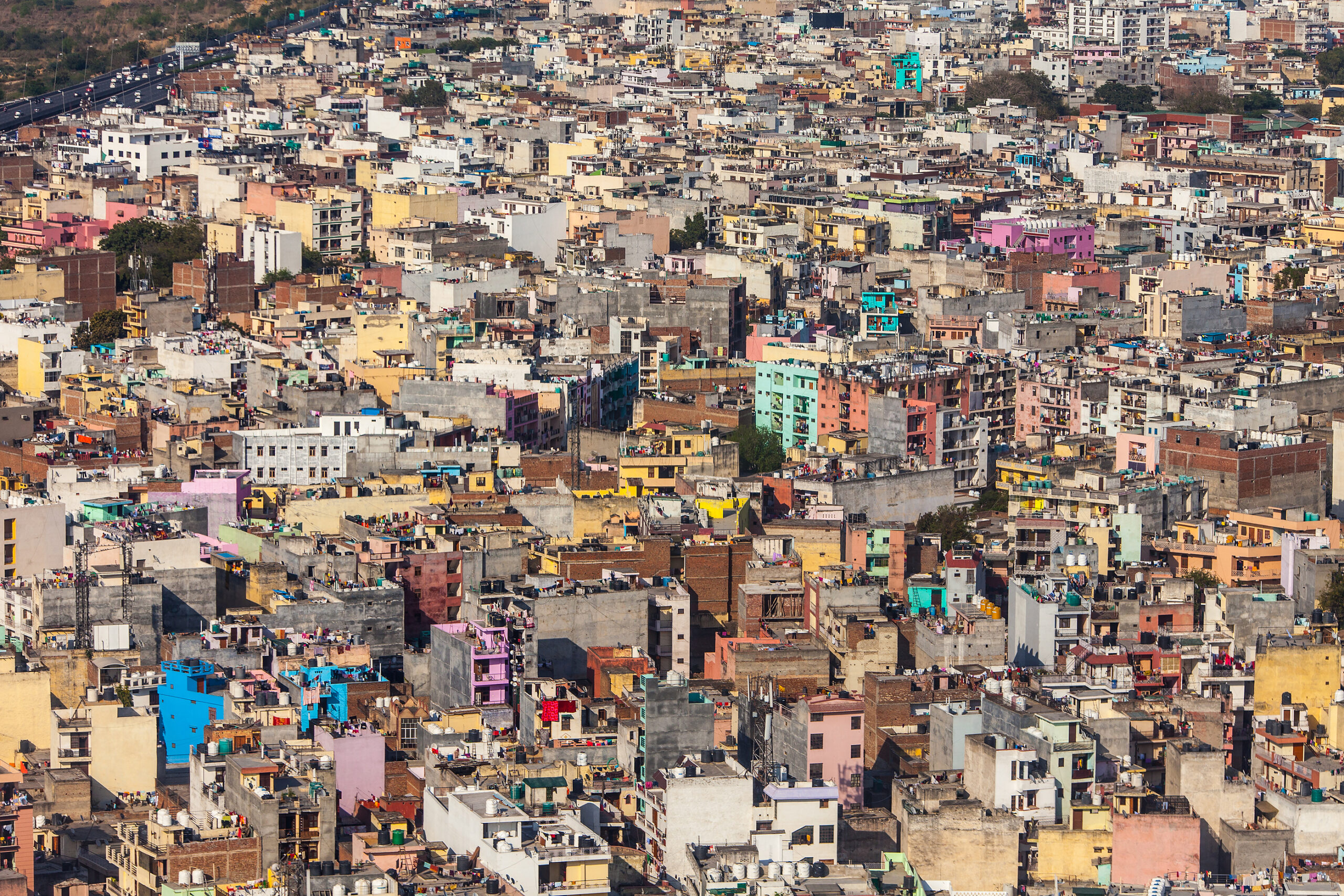
Earth overshoot day: the population connection
27 July 2022
immediate use
Earth Overshoot Day: the population connection
With Earth Overshoot Day falling this Thursday, 28 July, campaigning charity Population Matters is calling for greater recognition of the role of human population growth in driving planetary overshoot.
Calculated and promoted by the Global Footprint Network (GFN), Earth Overshoot Day marks the date when humanity’s demand for ecological resources and services in a given year exceeds what Earth can regenerate in that year. With the exception of 2020 (because of the pandemic), it has been moving earlier each year, indicating increasing levels of overshoot.[1]
GFN identifies population as playing a central role in the escalating crisis, stating:
Overshoot is driven by four key factors: 1) how much we consume, 2) how efficiently products are made, 3) how many of us there are, and 4) how much nature’s ecosystems are able to produce. Technology and more intensive inputs have helped expand biological productivity over the years, but that expansion has not come close to keeping pace with the rate at which population and resource demand have expanded. [2]
Crucially, it also calculates the potential value of achieving lower population growth in reducing overshoot:
If every other family had one less child and parenthood was postponed by two years, by 2050 we would move Overshoot Day 49 days. [3]
Its conclusions on the role of population growth in driving environmental and resource demands are supported by extensive additional and current evidence, including:
- In its Mitigation of climate change report this year, the Intergovernmental Panel on Climate Change stated: ”Globally, GDP per capita and population growth remained the strongest drivers of CO2 emissions from fossil fuel combustion in the last decade (robust evidence, high agreement).” [4]
- In its 2022 iteration, Project Drawdown, the rolling evaluation of policy solutions to climate change, rates action to address population the third most effective solution (out of 93) in limiting global warming to 2°C, and the seventh most effective in limiting warming to 1.5°C, by the year 2100. In the 2°C scenario, it is more effective than each of the technological solutions available. [5]
- The 2022 Drought in numbers report by the UN Convention to Combat Desertification states “Within the next few decades, 129 countries will experience an increase in drought exposure mainly due to climate change alone – 23 primarily due to population growth and 38 mostly due to the interaction between climate change and population growth.” [6]
- The US Energy Information Administration estimates global energy demand will rise by 50% between 2020 and 2050, as a result of “population growth and economic development”. [7]
Global Footprint Network goes on:
“Avoiding the population conversation does nothing to address one of the most significant contributors to humanity’s increasing demand on the planet.” [8]
Population Matters Head of Campaigns Alistair Currie says:
“Our experience is that most people intuitively grasp that a key component of Earth Overshoot is population growth. We’re sitting at nearly eight billion people, and the human population has multiplied by five since our patron Sir David Attenborough was born – a single human lifetime. Our demands so far for water, land, infrastructure, energy, comfort and food have been more than the planet can provide.
“No one is disputing that it is the wealthiest proportion of us who have so far driven those demands and that there are many steps we need to take to address the crisis, but we need to move beyond a simplistic analysis which ignores or is afraid to mention the role that population plays.
“We must also recognise the implications for our future. More people born into unsustainable levels of affluence drives further overshoot, while everyone living a life of insecurity or poverty deserves more than they have.
“One billion people live in the Least Developed Countries. It’s overdue time to recognise that ensuring they all can achieve a decent quality of life on a healthy planet requires that the richest – us – take less of what the Earth can provide, and that a smaller number of people born into poverty both makes it easier for people to escape it, and reduces the environmental impact when they do. It’s just not rocket science.
“Global Footprint Network is to be commended for talking frankly about an issue too many environmental advocates choose to ignore. Those who refuse to recognise the facts, or, still worse, vilify those who do, are helping no one.”
-ends-
Contact: Alistair Currie, Head of Campaigns and Communications, Population Matters
E: alistair.currie@populationmatters.org
T: +44 (0)208 123 9170 [24hrs]
References
[1] Earth Overshoot Day https://www.overshootday.org/about-earth-overshoot-day/
[2] Earth Overshoot Day 2022, Media Backgrounder https://www.overshootday.org/newsroom/media-backgrounder/#6
[3] Earth Overshoot Day, Solutions https://www.overshootday.org/solutions/population/
[4] IPCC 2022, Climate change 2022: mitigation of climate change “Globally, Gross Domestic Product (GDP) per capita and population growth remained the strongest drivers of CO2 emissions from fossil fuel combustion in the last decade (high confidence). Trends since 1990 continued in the years 2010 to 2019 with GDP per capita and population growth 23 increasing emissions by 2.3% and 1.2% yr-1, respectively.” https://www.ipcc.ch/report/sixth-assessment-report-working-group-3/:
[5] Project Drawdown (2022) Table of solutions https://drawdown.org/solutions/table-of-solutions
[6] UN Convention to Combat Desertification, Drought in numbers: 2022 ttps://www.unccd.int/sites/default/files/2022-05/Drought_in_Numbers_%28English%29.pdf
[7] US Energy Information Administration, World Energy Outlook 2021 https://www.eia.gov/outlooks/ieo/introduction/sub-topic-01.php
[8] Earth Overshoot Day, Solutions https://www.overshootday.org/solutions/population/
Population Matters is a UK-based charity working globally to achieve a sustainable future for people and planet. Our mission is to drive positive, large-scale action through fostering choices that help achieve a sustainable human population and regenerate our environment.
The Chandlery, 50 Westminster Bridge Rd, London SE1 7QY, UK
UK charity number: 1114109
